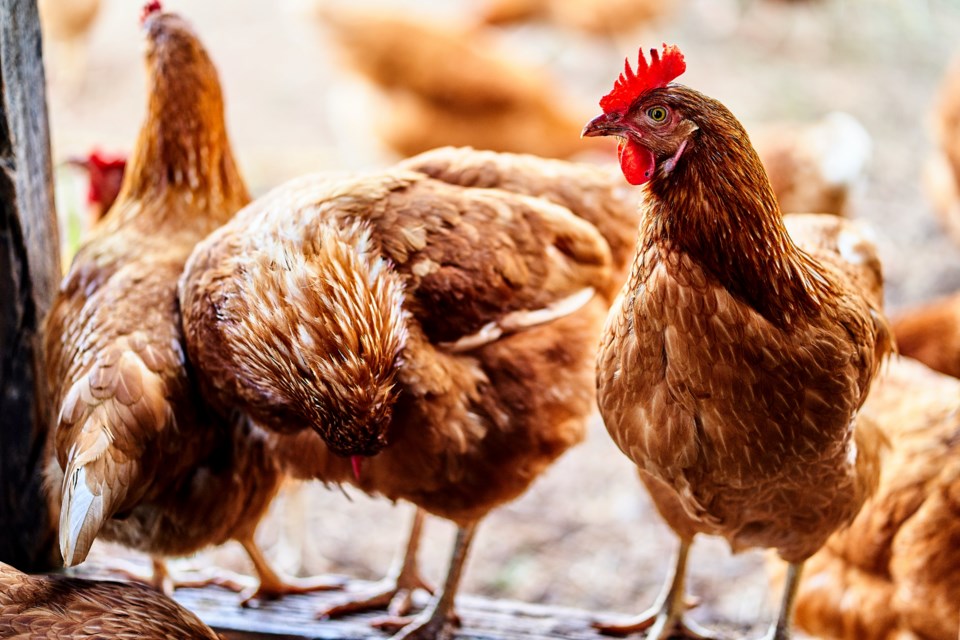Rocky View County (RVC) has confirmed it has had two reported cases of avian flu this year, and is reminding local residents the disease is still circulating in the area.
RVC Ag Fieldman and Manager of Operations, Jeff Fleischer, said, thankfully, the two reported cases of H5N1 this year, one in April and one in October, appear to be isolated incidents.
“Both have been in non-commercial, non-poultry flocks – so, I guess that’s the good news,” he said. “But the disease is still present in Rocky View County. Cases are ramping up across the province right now, and it’s most likely due to the fall, wild bird migratory season.”
While RVC has been largely spared the most dire consequences of avian flu to date, with winter conditions underway, Fleischer said it is important for local residents to remain vigilant.
“It is a reportable disease,” Fleischer said. “So if someone suspects a case in their flock, they must report it to the Canadian Food Inspection Agency (CFIA). Secondly, if someone has concerns about sick or dead wild birds, those must be reported to your local Fish and Wildlife office.”
Suspected domestic cases of avian flu may also be reported to a local veterinarian, according to Fleischer.
He said if people do not report instances of what they suspect to be the disease, it could have severe impacts on the livelihoods of local commercial poultry operations and hobby farms alike.
Fleischer pointed to recent outbreaks in neighbouring Mountain View County as an example of what could happen in RVC if avian flu establishes itself.
Great West Media reported last week that the CFIA has established a primary control zone (PCZ) quarantine around a poultry farm in Mountain View County east of Didsbury following the discovery of H5N1 highly pathogenic avian influenza (HPAI) on the non-commercial property.
The property involved was a non-commercial chicken - table egg layer; turkey - meat backyard farm, according to the World Organization for Animal Health website.
Of the 162 birds at the site, 156 were infected and died. The six others were killed and also disposed of.
On Sept. 27, the CFIA established a primary control zone around another non-commercial backyard chicken farm in the same general area as the outbreak on the Didsbury property.
In that case, 16 birds were infected and died, and 71 other birds at the facility were killed and also disposed of.
H5N1 is also linked to a widespread outbreak and kill count among turkey farms in British Columbia, which has led to a shortage of holiday turkeys in some B.C. grocery stores this Christmas season.
There were several reports of outbreaks at Alberta poultry and turkey farms earlier this year, which led to high mortality rates and mandatory culls of flocks.
Millions of birds, both domestic and wild, have died in Alberta from the deadly strain in 2022.
According to stats released by the CFIA back in late September, over 1.7 million domestic birds had been destroyed by the outbreak in Alberta alone this year as of that date.
While the disease represents a low risk to human health, and no risk to food safety, Fleischer said it is nonetheless important for County residents to remain vigilant.
“There could be devastating consequences to the local poultry industry, and a high mortality rate in flocks,” he warned. “So even if you are not sure, report it anyway – just to be on the safe side. It is out there, and people should be aware of it, for sure.”
—With files from Dan Singleton/Great West Media



